Content Management Skills
Learn about the skills you will need to develop to manage content effectively in any business or organization.

It takes a multiskilled person to manage content effectively for a business, company, or organization.
As explained in previous lessons, in addition to your duties and responsibilities as a content manager, you may be required to perform various other digital team roles to help meet the targets and deliver the expected outcomes set by the organization.
In this lesson, we’ll look at some of the general and specific skills you will need as a content manager to handle the day-to-day challenges of the role.
Before Your Start…
Make sure to review the following lessons:
General Skills Of A Content Manager
The following skills will help you to meet your day-to-day responsibilities as a content manager:
Be Highly Organized
You will be handling multiple projects on a regular basis and dealing with various challenges every day, such as things being held up or delayed that are out of your control, so you need to be highly organized to keep track of everything happening around you.
Other related skills in this area include having a great work ethic, being a highly motivated person (i.e. a self-starter), and having excellent adaptability, productivity, time management, and project management skills.
Be Systems-Driven
A content manager that relies on memory to keep track of everything that’s going on is a risk and a liability to the business.
If the only place where things are being tracked is inside a person’s skull and that person leaves or becomes unavailable, the business can experience significant disruption.
The same thing applies to “systems” that only make sense to those that created and are using them.
A good content manager should implement systems with documented processes and content management tools for each role in the content team so that anyone stepping into that role can follow the systems and processes and use the tools to manage things effectively and efficiently.
Effective systems must be well-documented, so a content manager must also…
Be Documentation-Oriented
Without documentation, growing and running a digital department effectively becomes very challenging.
Even managing a small team of writers, illustrators, video creators, etc. requires documented processes and guidelines, or chaos will ensue.
Documenting roles, responsibilities, and processes for your content team or digital department ensures that:
- People hired to fill roles can assume their responsibilities and perform competently and skillfully.
- Work done internally or outsourced will deliver results that are aligned with the company’s values, branding guidelines, and technical specifications
- Content will be created and delivered to consistently high-quality standards.
Being documentation-oriented requires skills like:
- Documenting and following processes.
- Paying meticulous attention to detail.
- Critical and logical thinking.
- Proofreading, comprehension, grammatical, and spelling skills.
- The ability to communicate concepts in a way that teaches, trains, and empowers users.
- Working patiently through many repetitive tasks.
Be Committed To Meeting Deadlines
Publishing high-quality content on a regular basis is one of the key strategies for growing a business online.
As we cover in more detail in our modules on Content Planning, Content Production, Content Management, and Content Promotion, all areas of a business from sales and marketing to customer training and support rely not only on new content being regularly published on its website, blog, newsletters, social media updates, stakeholder reports, etc. but also on having its existing content being kept up-to-date.
Different channels may also have different content publishing schedules (e.g. weekly, fortnightly, monthly, quarterly, annually), so having the commitment and ability to meet all kinds of deadlines and having great time-management skills is vitally important.
Be A Good Communicator
One of the benefits of becoming a content manager is that most digital-based roles allow companies to have a distributed workforce where people can work remotely from anywhere in the world.
You could be working with a team of people across different departments, (and dealing with external suppliers and service providers) from different cultures and backgrounds who are all located in different parts of the world, working in different time zones, and observing different seasons and holidays, where your only means of interaction is by using remote applications and platforms like video chat, messaging, email, phone, etc.
This all requires having great communication and interpersonal skills. Not only the ability to communicate promptly, clearly, and effectively with other people, but also with sensitivity and awareness (e.g. your weekly team meeting may be held within your working hours, but be on someone else’s dinner or “putting the kids to bed” time.)
Be Knowledgeable Of Your Content Subject
Anyone reading your company’s website, blog, newsletters, social media posts, or looking up documentation in user manuals, FAQs, etc. expects the content to show great expertise and knowledge of the business.
While you may not be required to write content for some or all of your company’s content-related areas, as a content manager, you will be expected to be sufficiently knowledgeable about your company and its business, products, services, etc. to discern whether or not the content is delivering on its intended purpose.
So, it goes without saying that as a content manager, you should strive to gain as much knowledge and expertise as possible of your company’s products and services and the needs of its target audience groups, in addition to understanding and being familiar with concepts related to its technical, legal, financial, or sales and marketing areas.
This can be challenging if, for example, you work in a highly technical company and are responsible for producing and managing content targeted to a highly technical audience.
This is where the next skill comes in…
Be Resourceful And Self-Sufficient
Suppose that your company publishes content targeted to a highly technical or specialized audience (or even translated into one or more foreign languages).
While as a content manager you are not expected to have the kind of technical knowledge that requires years of specialized study and experience to develop, you are responsible for making sure that the content not only targets the interests and needs of the audience, but is also accurate, relevant, and fulfills its intended purpose.
In addition to all the skills we’ve covered so far, this requires being resourceful and self-sufficient.
Let’s show you what this means:
Let’s say that you are publishing an article about a highly technical product that includes tables with code, programming data, specifications, equations, formulas, etc. You need to make sure that everything in the article is accurate, but you are not a technical expert, so you have no idea. The head of your company’s product development team, however, is completely knowledgeable about it, as they were responsible for developing it, so they can help you.
Now, before you approach them for help, understand that everyone in your company is as busy as you are and don’t want to be disrupted unnecessarily or distracted from whatever they are doing. If they sense that you are being lazy and simply asking them to do your job, they may graciously help you once and then make themselves scarce or unavailable the next time you come knocking on their door asking for help.
So, before approaching or consulting anyone who can help you, make sure that you have done as much research as you can to try and solve the problem on your own. This way, when you approach other people for help, you can explain why this is important for the company and show them that you have sincerely gone as far as you can with it and that what you need help with is beyond your capabilities. Most people you approach this way will be more than willing to invest their time and effort into helping you.
Be Open To New Challenges And Willing To Learn New Things
Management is all about problem-solving. As a content manager, you will face all kinds of challenges throughout your day and be required to solve problems related to people, resources, time, objectives, etc. (e.g. who will do what, with how much, by when, how will it be tracked, measured, reported, improved upon, and so on).
Being open to new challenges and willing to learn new things will help you immensely in this area, as most of your learning and experience will come from working “hands-on” to pressing time frames and tight deadlines, with limited resources and often with very few people available to help you.
Now that we have covered the main general skills you’ll need as a content manager, let’s look at some more specific skills.
Specific Skills Of A Content Manager
Having skills in the areas below will help you perform successfully in the role of a content manager:
SEO Writing
Content managers are more than brand advocates, they are brand evangelists.
Having strong writing skills and creativity is a must. Depending on the type of company you work with, this includes being able to write content for blogs, web pages, product descriptions, technical articles, sales and landing pages, news articles and press releases, email newsletters, editorials, tutorials, user guides, etc.
Additionally, you will need good copywriting and text and image editing skills, as you will most likely be assisting in areas like creating marketing content and editing the work of others.
On top of all this, you should have a general understanding of SEO, as most businesses will want to reach new audiences using organic search.
Data Analysis
You can’t manage what you can’t measure and you can’t improve what you’ve measured if you don’t understand the data.
If you don’t understand the data, you also can’t analyze the results to see how well your content is performing and if it is connecting meaningfully with your audience.
As a content manager, you need to understand your content metrics and be able to analyze and interpret data from marketing and promotional campaigns, traffic analytics, SEO research, audience behavior, and different types of datasets.
You will then need to audit and collate these results into meaningful reports with actionable insights that you can use to present, inform, and advise people making executive decisions or working in collaborative projects.
Proficiency With Content Management Systems And Tools
As a content manager, it’s very important to have competency and proficiency with the content management system and content management tools that you (and your team) will be working with.
This includes knowing how to use:
- Tools for transferring files from your web server or cloud storage service to your computer/laptop (or vice-versa) and uploading these to your website,
- Image editing tools, (e.g. for capturing and editing screenshot images or resizing images),
- Media creation tools (e.g. for creating simple sales or explainer videos),
- Content formatting tools, (e.g. for checking grammar and spelling),
- Plus, tools used in content marketing, social media, etc.
As mentioned earlier, a content manager is a “hands-on” role and not all organizations can afford a digital department where you can simply delegate all the work to others.
More often than not, you will be working with businesses that have very limited resources and be required to assume the responsibilities of various different roles, some of which will require proficiency in using specific tools and software applications to get the work done.
Tips for Successful Content Management System Interview Answers
When applying for a role in content management, you may be asked to share about your experience and knowledge of using a CMS.
Here are some tips and key points to help you succeeed in your interview:
- Understand CMS Basics: Ensure you grasp what a CMS is and its functions. Provide a simple definition with specific details about your experience.
- Highlight Benefits: Articulate the advantages of a CMS, citing examples from your past work. Emphasize benefits like content scheduling, easy image uploads, and coding flexibility.
- Navigate Coding: Demonstrate proficiency in embedding code within a CMS. Offer examples of coding tasks you’ve managed, tailored to the CMS platforms you’ve worked with.
- Differentiate Posts and Pages: Clarify the distinction between posts and pages, providing examples of each from your experience. Showcase your familiarity with digital marketing terminology.
- Explain CMS Purpose: Discuss the primary function of a CMS in enabling content creation, management, and collaboration. Tailor your response to your experience with different CMS platforms.
- Highlight Varied Uses: Illustrate how you’ve leveraged CMS for tasks beyond content management, such as website optimization, analytics tracking, and team collaboration. Provide specific examples from your professional background.
Familiarity With Website Languages And Basic Web Concepts
You don’t need to become a web developer or learn how to code to become a content manager, but knowing some basic HTML and CSS can be useful if you need to do some quick content editing on a web page or fix up an issue with the layout of a web page and don’t have immediate access to a web developer or a web designer.
As a content manager, you will need to know your way around your website’s content management system and this means occasionally having to insert a line or two of HTML or CSS code into a web page or template or some other kind of script.
Additional Skills
In addition to the general and specific skills listed above, you will want to have skills in areas like content strategy, content planning, content production, content promotion, and, of course, content management, all of which this course will teach you.
Content Management Skills – FAQs
Here are frequently asked questions about content management skills:
What are content management skills?
Content management skills refer to the abilities required to effectively create, organize, edit, and publish digital content. These skills encompass proficiency in using content management systems (CMS), understanding content strategy, and possessing strong communication and project management skills.
What does a content manager do?
A content manager oversees the creation, editing, and publishing of digital content. They develop content strategies, manage content calendars, coordinate with writers and editors, and ensure content aligns with organizational goals and audience needs.
How can I improve my content management skills?
To enhance content management skills, consider gaining experience with different content management systems, refining writing and editing abilities, understanding SEO principles, learning about content strategy and analytics, and staying updated on industry trends through continuous learning and practice.
What experience should I have with content management systems?
Experience with content management systems involves proficiency in using platforms like WordPress, Drupal, or Joomla. Familiarity with tasks such as content creation, editing, and publishing, as well as understanding user permissions and workflow management, are essential.
What are some common content management interview questions?
Common interview questions include inquiries about experience with CMS platforms, content strategy development, handling editorial calendars, managing content teams, and addressing challenges in content production and distribution.
Summary
Being a content manager is not an entry-level role.
Developing and distributing timely, relevant, and high-quality content to a targeted audience requires someone who is not only creative, resourceful, and multi-skilled, but who also has a deep understanding of the company’s brand voice, and can use it to communicate with people on all levels, from internal and interdepartmental staff, managers, executives, and outsourced service providers, to vendors, resellers, and prospective or existing customers.
In addition to being creative, content managers usually have to juggle managing multiple projects, and a content team on a limited budget and with limited resources. They also might collaborate with other teams for projects.
This role is not entry-level — content managers are generally expected to lead their team and foster growth, so it’s a job that’s filled by someone with a couple of years of experience in marketing, communications, and project management.
Useful Resources
We recommend the following resources to help build your content management skills:
- The E-Myth: Why Most Small Businesses Don’t Work And What To Do About It – Michael E. Gerber’s classic book provides valuable information on how to stop working in your business and start working on your business.
- Digital Business Video Courses – Video courses to help you develop the digital skills you need to manage content effectively.
- WordPress User Manual – The most detailed and comprehensive step-by-step WordPress user manual for non-technical website users available.
- The Small Business Digital Manager – This guide covers the challenges many small businesses face running an effective digital presence and provides practical ways to address these.
- Content Troubleshooting Guide – Use this guide to troubleshoot content-related issues.
Visit our tools and resources section for additional courses, guides, and helpful tools and resources for content managers.
References
***
This concludes our lesson on the skills you will need to develop as a content manager.
Action Steps
Please make sure to complete all lessons in this training module before proceeding to the next training module.
Next Lesson
Go here for the next lesson in the Digital Business training module: Content Management Setups
Digital Business – Module Lessons
Below are all the lessons included in this module. Click on a link to go directly to the lesson:

The Role Of The Content Manager
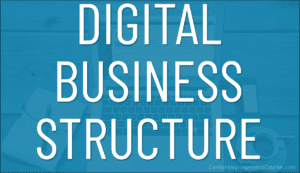
Digital Business Structure
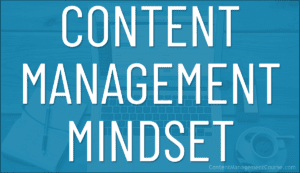
Content Management Mindset
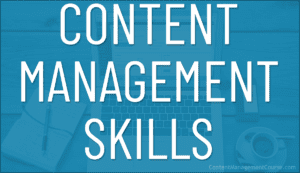
Content Management Skills
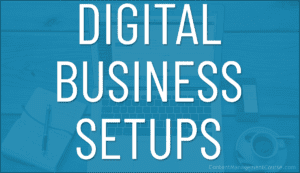
Digital Business Setups
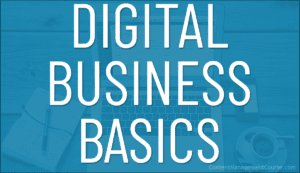
Digital Business Basics
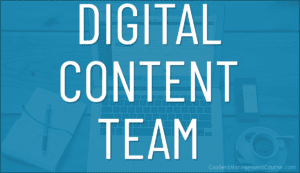
Digital Content Team

Content-Related Jobs and Careers
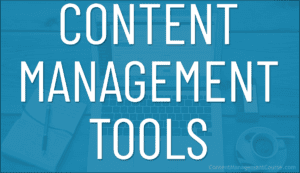
Content Management Tools
Return to the Course Outline.
***
Image: Multiskilled Woman
